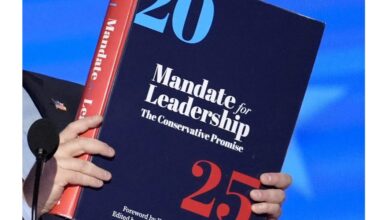Colin Huang, founder of Temu’s parent company, is now China’s richest man


After a number of successful ventures in the gaming and e-commerce industries, Colin Huang fell ill and retired. At one point, the young entrepreneur stayed home for a year to think about his next move.
The former Google engineer eventually founded Pinduoduo, an e-commerce platform known for selling low-cost products with great deals, in 2015. He quickly rose through the ranks of the world’s richest people, with his net worth peaking at $71.5 billion in early 2021.
Like many so-called Covid billionaireHis fortune collapsed as quickly as it was created, dropping 87% in about a year. Huang’s decline was especially pronounced as the global pandemic slowed and coincided with China’s sudden crackdown on its private sector.
Then something unexpected happened: Huang’s PDD Holdings Inc. made a comeback. Not as big as before, but steady, with expansion outside China under the Temu brand helping to counter a persistently weak domestic economy.
As a result, Huang, now 44, has become China’s richest person, according to the Bloomberg Billionaires Index. With a fortune of $48.6 billion, he has replaced Zhong Shanshan, the country’s bottled water king, who held the top spot. as of April 2021.
Huang’s remarkable rise has been fueled by China’s changing shopping habits after the country’s property crisis turned into a prolonged recession. He is also the first tech tycoon to top the wealth rankings in more than three years, after the government pressure of private businesses that have drawn rivals like Jack Ma’s Alibaba Group Holding Ltd. Along the way, Huang has also drawn opposition from suppliers for slashing prices and imposing harsh work schedules on his own employees.
“Ma and Jeff Bezos were the business leaders of their time, but times have changed and Huang is achieving great success with a different, less conspicuous approach,” said Brock Silvers, managing director at private equity firm Kaiyuan Capital.
A PDD representative did not respond to a request for comment.
Math prodigy
Unlike Ma, an English teacher turned Alibaba founder, Huang represents a new generation of Chinese tech entrepreneurs starting their careers with global opportunities.
At age 12, his extraordinary mathematical talent earned him a place at the prestigious Hangzhou Foreign Language School, where he was classmates with the children of China’s political and social elite. After graduating with a degree in computer science from Zhejiang University, he left China in 2002 to pursue a master’s degree at the University of Wisconsin.
Two years after graduating, he moved back to help found Google China. He founded his first company in 2007, then sold it in 2010 to start a new one that helps companies market themselves on sites like Alibaba’s Taobao or JD.com. When a ear infection It was during his retirement in 2013 that he came up with the idea of founding Pinduoduo.
PDD “is not to make Shanghai people feel like they are living in Paris, but to make sure Anhui people have kitchen paper and fresh fruit,” Huang said in a 2018 interview with Caijing Magazine. “The goal is not to be cheap, but to make the user feel like they got a bargain.”
Temu Time
Huang has largely stayed out of the spotlight since his step down as PDD’s CEO in 2020 and stepped down from the board as chairman in 2021, as Beijing began cracking down on China’s tech giants. (He said he was pursuing personal interests in food and life sciences research, according to a letter to shareholders.)
Around that time, his PDD and net worth began to plummet.
But Temu, PDD’s product outside China, has bolstered the company’s top line and helped fuel its recovery. It soared to the top of U.S. app stores when it launched in September 2022, targeting Americans tired of inflation with cheap, unbranded products shipped directly from China. PDD reported about 248 billion yuan ($35 billion) in revenue in revenue Last year increased by 90% compared to 2022.
“In this economic environment, people are clearly looking for great value for their money, people are looking for low prices. So this is a time for value retailers like Temu to shine,” said Neil Saunders, a retail analyst at GlobalData Retail.
All of that, along with China’s December 2022 rollback of its Covid-Zero policy, has fueled PDD’s valuation surge. In November, the company surpassed Alibaba for the first time to become China’s second-largest internet company, and the two rivals have been in a tight race ever since.
Punishment Time
However, the rapid growth has attracted scrutiny at home and abroad. Even after investigations into working conditions following death of an employee in 2021PDD continues to require employees to work from 11 a.m. to 11 p.m., six days a week, plus overtime, a variation on the industry’s “996” culture that companies like ByteDance Ltd. and Alibaba have moved away from after Beijing’s scrutiny.
Temu’s super-cheap offerings have also led to growing frustration among some merchants and third-party sellers, who feel the e-commerce giant is increasingly squeezing them for revenue. Things culminated in a series of public protests this summer, when, in one case, hundreds of small vendors the slogans shouted outside Temu’s headquarters in Guangzhou to protest what they called unfair penalties imposed by the company.
Elsewhere, small businesses in the United States have also taken note of Temu’s rapid growth. The company is currently taking advantage of a trade loophole that allows duty-free shipments of up to $800 into the United States by sending small packages from its warehouse in China to individual Americans. Lobbyists are pushing to lower the threshold to $10.
However, PDD has engaged in massive advertising campaigns, including spending millions of dollars on a 30-second spot. Super Bowl Ad for Temu. It also has attractive banners on its Temu website, including: “Shop like a billionaire.”
“Temu right now is all about growth,” Saunders said. “Get people to the site, get them to shop. Then, if they get more addicted, maybe they’ll start to be more tolerant if we push the price up a little bit. So I think for Temu, it’s the land grab era.”




